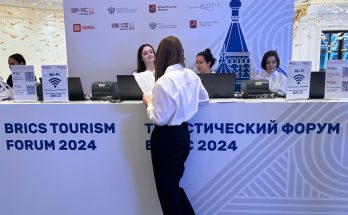
TOKYO: In key steps that will propel the multi-faceted India-US ties onto a higher trajectory, Prime Minister Narendra Modi and US President Joe Biden met in the Japanese capital and decided to intensify their engagement in areas ranging from trade and investment and defence to vaccines and critical technologies.
The two leaders held bilateral talks on the margins of the Quad summit in Tokyo on May 24 and decided to advance their cooperation in shaping “a free, open and inclusive Indo-Pacific region.”
The two leaders shared their enthusiasm to add more depth and momentum to the multi-layered partnership between the world’s oldest and most populous democracy. PM Modi glowingly described the India-USA Strategic Partnership as “truly a Partnership of Trust,” and underlined that “our shared values, and our common interests in many areas, including security, have strengthened the bonds of this trust.”
“I am confident that the friendship between India and USA will continue to be a force for good for global peace and stability, for the sustainability of the planet, and for the well-being of mankind,” said PM Modi. “There’s so much that our countries can and will do together, and I am committed to making the U.S.-India partnership among the closest we have on Earth,” said President Biden.
The key outcome of the Modi-Biden meeting was a shared plan to upscale and transform defence relationship to a higher level, qualitatively and quantitatively. In this context, PM Modi conveyed to Biden his invitation to US defence companies to scale up their investment in India under the Make in India model of joint development and co-production.
The two leaders reaffirmed that defence and security cooperation is a crucial pillar of the India-US bilateral agenda and discussed how they can further strengthen collaboration. “In this context, Prime Minister Modi invited the US industry to partner with India to manufacture in India under the Make in India and Aatma Nirbhar Bharat or self-reliant India programmes which can be of mutual benefit to both countries,” said a statement by India’s external affairs ministry.
The focus will be on promoting defence manufacturing in India, with the participation of US defence companies in co-manufacturing in India, said India’s Foreign Secretary Vinay Mohan Kwatra when asked by this writer about a US proposal to provide $500 million to India to reduce New Delhi’s dependence on Russian weapon systems.
Another important takeaway was the launch of an India-U.S. Initiative on Critical and Emerging Technologies (iCET) to facilitate outcome-oriented cooperation. Co-led by the National Security Council Secretariat in India and the U.S. National Security Council, iCET would forge closer linkages between government, academia and industry of the two countries in areas such as AI, quantum computing, 5G/6G, biotech, space and semiconductors.
The two Leaders welcomed the signing of the Investment Incentive Agreement, which enables the US Development Finance Corporation to continue providing investment support in India in sectors of shared priority such as healthcare, renewable energy, SMEs and infrastructure.
(Manish Chand is CEO-Editor-in-Chief, India Writes Network, and India and The World magazine. He is Director, Centre for Global Insights India, a think tank focused on global affairs)
Author Profile

- Manish Chand is Founder-CEO and Editor-in-Chief of India Writes Network (www.indiawrites.org) and India and World, a pioneering magazine focused on international affairs. He is CEO/Director of TGII Media Private Limited, an India-based media, publishing, research and consultancy company.
Latest entries
 India and the WorldJuly 9, 2024Defying West, India sets $100 billion trade target with Russia
India and the WorldJuly 9, 2024Defying West, India sets $100 billion trade target with Russia India and the WorldJuly 5, 2024India at SCO: Takes swipe at Pakistan for cross-border terror, pushes alternative to BRI
India and the WorldJuly 5, 2024India at SCO: Takes swipe at Pakistan for cross-border terror, pushes alternative to BRI India and the WorldJune 14, 2024Modi’s Day 1 in Italy: Bonding with Britain, France
India and the WorldJune 14, 2024Modi’s Day 1 in Italy: Bonding with Britain, France India and the WorldJune 13, 2024G7 summit in Italy: Modi to showcase India as leader of Global South
India and the WorldJune 13, 2024G7 summit in Italy: Modi to showcase India as leader of Global South






